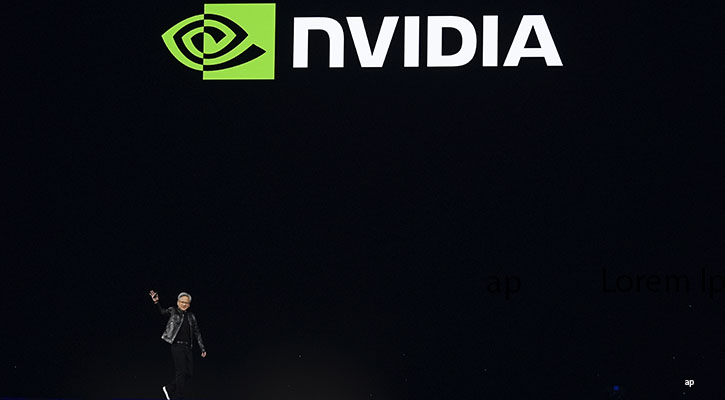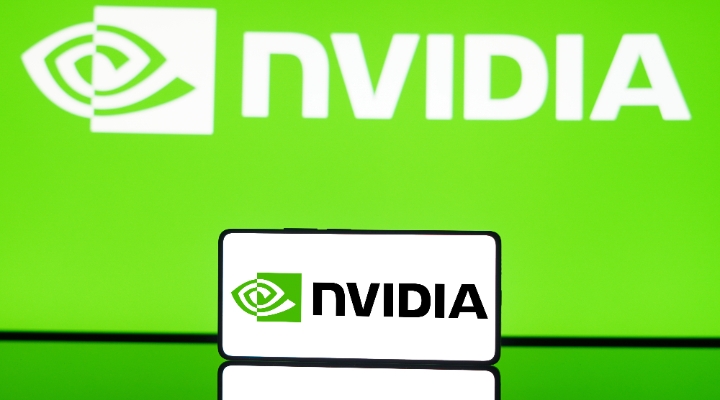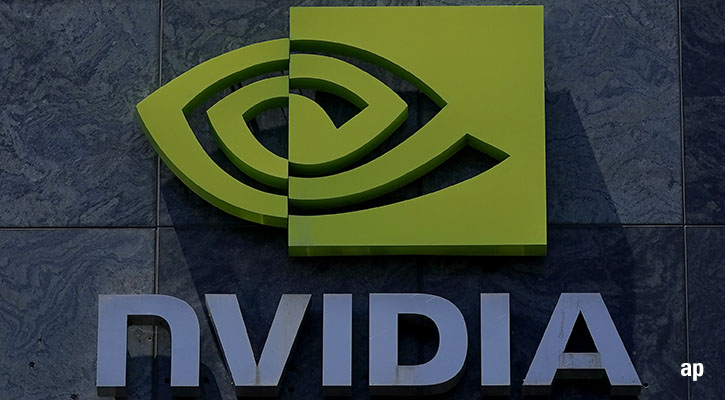
Semiconductor firm Nvidia (NVDA) announced a 10-for-1 stock split along with its blowout first-quarter earnings results on Wednesday. The stock split means investors will receive nine additional shares for each one they already own.
“The split is reasonable since the stock price has appreciated so significantly,” says Morningstar technology equity strategist Brian Colello.
Nvidia shares are up more than 90% this year and more than 200% over the past 12 months, as the company has boomed thanks to the key role its semiconductor chips play in training and running artificial intelligence models. It now trades at over $1,000 per share, while it went for $495 at the end of 2023. The stock was changing hands near $305 per share in May 2023, just before the firm reported blowout earnings that kicked off the AI stock frenzy.
The firm’s last stock split was in July 2021, when it issued three new shares for every one outstanding (a four-for-one split).
The Date for Nvidia’s Stock Split
According to the company’s press release, the split is slated to occur after the stock market’s close on June 7. Shares will trade on a post-split basis starting June 10.
Colello raised his fair value estimate for Nvidia stock from $910 to $1,050 following the company’s first-quarter results, which saw revenue of $26 billion, an 18% increase over the previous quarter and a 262% increase over the year-ago quarter.
What Nvidia’s Stock Split Means
While the split will increase the number of outstanding shares in circulation, it will not change the company’s overall value or affect Morningstar’s view of its stock. “Splitting the stock shouldn’t create economic value in theory, but it will make the company more accessible to smaller investors,” Colello explains. While $500 isn’t enough to buy a single share of Nvidia today, he explains, it will be enough to buy several shares after the split.
After the split, Nvidia’s fair value estimate will be adjusted to $105. The firm’s wide economic moat rating will be unaffected, as will its 3-star rating (meaning the stock is considered fairly valued) and very high uncertainty rating.
Nvidia’s AI Boom
The firm’s first-quarter earnings show it “remains the clear winner in the race to build out generative artificial intelligence capabilities,” Colello writes. “We’re encouraged by management’s commentary that demand for its upcoming Blackwell products should exceed supply into calendar 2025, and we see no signs of AI demand slowing either.”
Colello is looking ahead to strong revenue growth from data centres over the next several quarters, and he expects additional growth from a higher installed base of AI equipment. He is anticipating revenue of $29.7 billion in the next quarter, slightly more than Nvidia’s estimate.
For now at least, Colello doesn’t believe that the rush of companies buying Nvidia’s chips will stall out. Nvidia’s production is still well matched to demands from customers, he says, although it is a risk that bears watching. “Given Nvidia’s astronomical growth, we continue to assess the risk of companies buying too many AI GPUs too soon, leading to an air pocket and excess inventory at some point in the future. We see no such signs today,” he writes.
Why Do Companies Split Their Stock?
When a company splits its stock, each share gets divided into multiple new shares. While this increases the number of outstanding shares, it does not change the company’s overall value (its market capitalisation). Firms tend to do this when their share price has risen dramatically to an amount that might make it difficult for individual investors to purchase them. Having a larger number of cheaper shares to attract more buyers can help improve liquidity, and lower prices can also have the psychological impact of making shares look more attractive to investors, even though the company’s underlying value hasn’t changed.
Other Recent Stock Splits
Nvidia isn’t the only major company to split its shares in recent years. Retail giant Walmart (WMT) enacted a 3-for-1 split in February, while Alphabet (GOOGL/GOOG), Tesla (TSLA), and Amazon (AMZN) split shares in 2022.




























